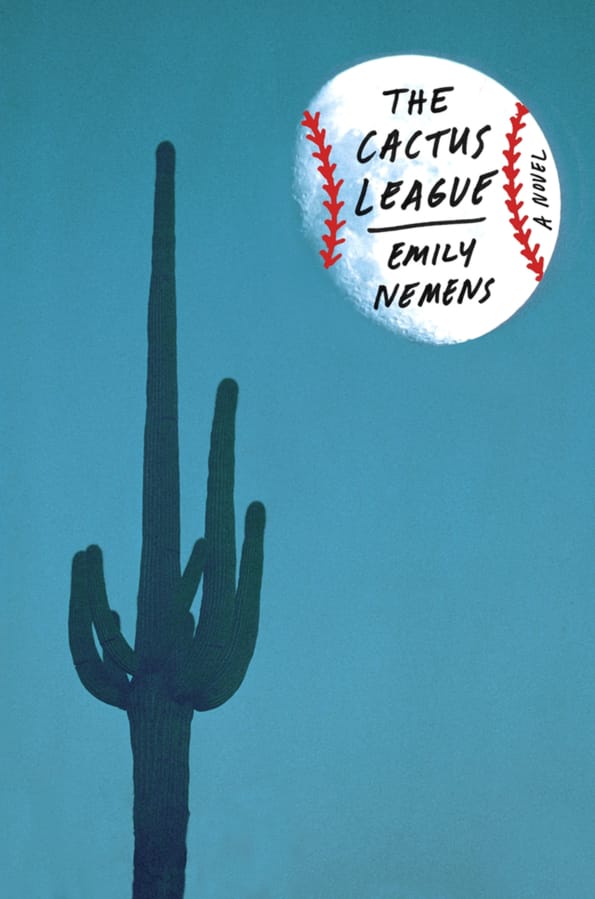SEATTLE — Emily Nemens grew up in Seattle and loved going to baseball games with her dad. She remembers Mariners games at the Kingdome — “I have distinct memories of Ken Griffey Jr.’s rookie year” — and, on sunny days, going to Tacoma to watch the Rainiers play. When she was in middle school, she and her father started going to spring training in Arizona to watch the Mariners play in Peoria; they didn’t make it every year, but “often enough that it became a ritual, a routine.”
Years later, that ritual inspired Nemens’ irresistible first novel, “The Cactus League,” set among “the carnival that I saw in spring training growing up,” she said in a recent telephone interview from her New York City home. She hasn’t lived in Seattle since leaving for college after her graduation from Garfield High School, but Nemens still has family in the area (and a 206 area code on her cell).
“The Cactus League,” which debuted this month, follows a series of characters connected to professional baseball — a star outfielder, an almost-retired batting coach, a player’s wife, a sports agent, a woman who (like Annie Savoy in “Bull Durham”) seeks out ballplayers for seasonal romance. We get inside their heads, one by one, and watch as their stories gradually and gracefully converge under the cool, late-February Arizona sunshine — a complex structure that Nemens makes look as easy as a major-leaguer nonchalantly catching a line drive.
Nemens, who since 2018 has been the editor of the storied literary magazine The Paris Review, said the idea for “The Cactus League” came to her when she was in graduate school at Louisiana State University. “I was starting to think about stories, a big project to delve into,” she said. “I was really struck and surprised by the manifestation of sports culture in the Deep South — college football and tailgate culture was just a really big and interesting thing.”




